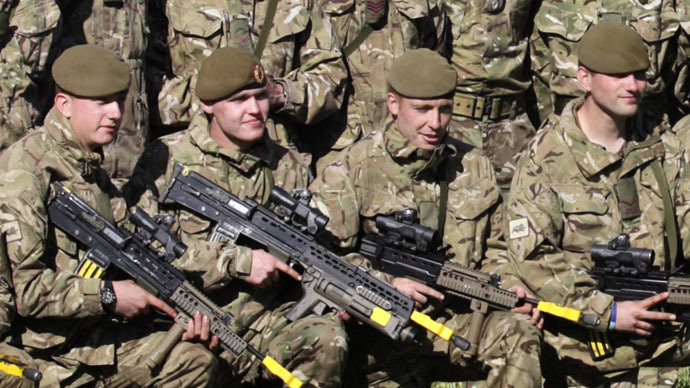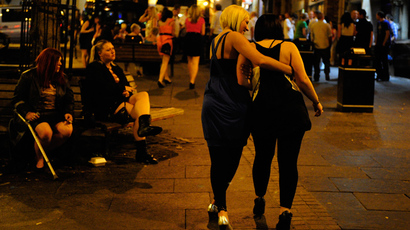British males drawn away from ‘macho’ professions, don’t ‘feel man enough’ – study

British men are increasingly drawn away from certain career paths because they do not feel “man enough” to pursue them, according to a new study.
Published in the British Journal of Psychology on Tuesday, the study suggests career paths, including the military and construction work, are still characterized by a “macho stereotype,” drawing fewer men to their ranks.
In a study of 218 Royal Marine recruits and 117 male surgical students, researchers also found being a man was not enough to counter ‘macho stereotypes’. The attitudes prevalent in some career paths had a detrimental effect on women recruits.
“Women have made substantial inroads into some traditionally masculine occupations, but not into others,” said University of Exeter professor Michelle Ryan.
“There is evidence that the latter group of occupations is characterized by the hyper-masculine macho stereotypes that are especially disadvantageous to women.
“We explored whether these macho occupational stereotypes that are associated with marine commandos and surgeons also discourage men who feel that they ‘are not man enough,” she added.
Women are currently excluded from joining the Royal Marines, and make up only a quarter of surgical trainees.
The researchers also found there were men in the British Army who did not feel they were living up to the stereotypes of the elite forces, and as a result were prone to demotivation and even depression.
The study also showed men who did not feel they were ‘masculine enough’ to be a surgeon were considering leaving the profession, causing some industries were finding it difficult to shake off public perceptions.
“We’ve shown that the men who enter into and remain within such occupations will be those who exemplify the occupation’s macho stereotypes,” said the report’s co-author Dr Kim Peters, of the University of Queensland.
“Intriguingly, this suggests that increasing the appeal of these occupations to a more diverse range of men may be one way of increasing their appeal to women.”
Earlier this year, official figures showed that male suicide rates were the highest since 1999 and that suicide was the most common cause of death for males aged between 20 and 49. According to the most recent figures, 4,590 British men committed suicide in 2012 alone.














